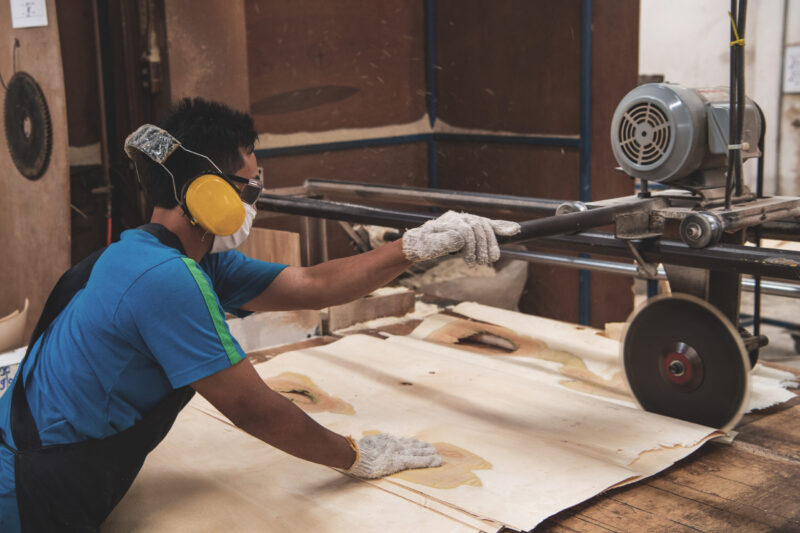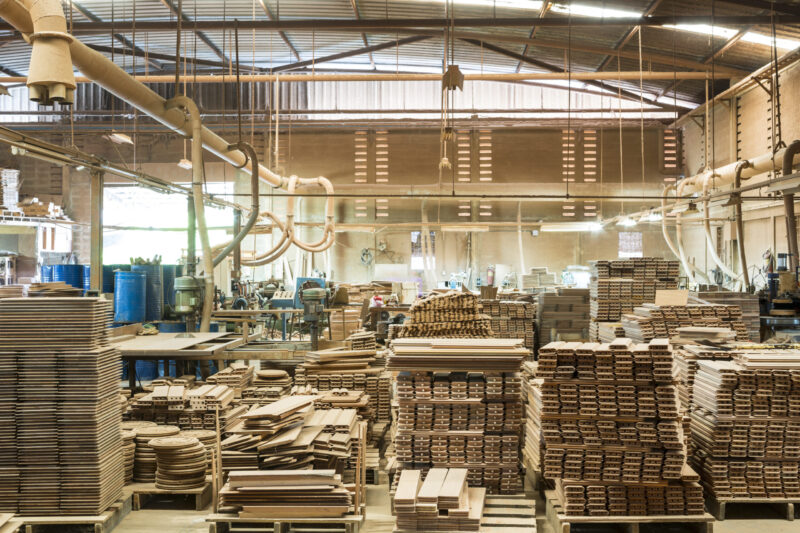
This site
is mobile
responsive

According to the Global Industry Insights Inc. report in September 2021, the global wooden furniture market revenue is expected to reach US$550 billion by 2027. Growing consumer expenditure on high-end furnishings will accelerate the trend. This sparks much potential for Malaysia’s furniture industry which contributes almost 40 per cent of the wood-based industry’s total export earnings.
A total of 85 per cent of Malaysia’s annual furniture production volume is exported to more than 160 countries throughout the world, with the US, Japan, Australia, Singapore, Europe, India, United Arab Emirates and South Africa being the main markets.
Among the known international furniture brand that are made in Malaysia are Lorenzo, Benchcraft and Ashley.
Since 1986, the Malaysian furniture industry has undergone a rapid expansion. However, the pace of annual growth plateaued in recent years due to stagnating productivity growth and increased competition from rising Asian furniture powerhouses, such as China and Vietnam. To stay relevant, the furniture industry in Malaysia requires a production overhaul in terms of increasing local skilled expertise, adopting Industry 4.0 technologies and increasing product quality and standardisation.
The Government continues to push companies to move up their current Industry 3.0 production level into machinery upgrades with advanced technologies, as well as reduce the dependency of high number of labour; while scaling up local talents in designing and producing sophisticated and trendy products. Companies are utilising the Automation Capital Allowance (Automation CA) incentive offered to manufacturers for eligible automated machinery.
As manufacturing companies are to comply with an 80 per cent Malaysian employment condition by 31 December 2022, the ‘JaminKerja’ Initiative was announced in Budget 2022 through the Social Security Organisation (SOCSO) as salary incentives for employers to hire locals, so as to encourage job creation and address the unemployment rate due to the impact of the pandemic.

In addition, the National Investment Aspirations (NIA) launched in April 2021 aims to increase economic diversity and complexity through the development of sophisticated products and services with high local Research and Development (R&D) and innovation; create high skill jobs to provide better income for the rakyat; expand and integrate domestic linkages into regional and global supply chains, by improving their resiliency; develop new and existing clusters focusing on high productivity sectors, including local products and services; and improve inclusivity to contribute towards the socio-economic developmental agenda.
Aligned with the NIA, the Government continues to emphasise the adoption of Industry 4.0 technologies among furniture makers to adopt new business approaches and processes. Industry 4.0 encompasses five components, i.e. the digital component, intelligent machine, horizontal networking, vertical networking and the smart workpiece. It is about producing furniture in the most efficient manner to meet customer preferences via the application of digital technologies. Key enablers include Enterprise Resource Planning (ERP), Warehouse Management System (WMS), Manufacturing Execution System (MES), cloud computing, 3D Printing, Augmented Reality, Artificial Intelligence (AI) and Industrial Internet of Things (IIoT). These technologies enable furniture companies to capture real-time shop floor data and translate it into useful information for real-time decision making. They can also increase productivity, achieve higher efficiency and expand their market segmentation to be at par with global competitors.
The Government, through the Ministry of International Trade and Industry (MITI) and MIDA highly encourage Malaysian Small and Medium Enterprises (SMEs) to embrace these new types of technologies to accelerate business growth and ensure long term sustainability. SMEs should participate in the Industry4WRD Readiness Assessment exercise with the Malaysian Productivity Corporation (MPC), to be eligible for the Industry4WRD Intervention Fund under MIDA. The fund is provided on a matching basis (70:30), based on eligible expenditure, up to a maximum grant of RM500,000.
A number of companies have since been approved for partial expenditure on machine software, dashboard system, cloud database and access points (AP); Manufacturing Execution System (MES), barcode scanner and barcode printer, apart from specific Industry 4.0 related training activities.
The Smart Automation Grant (SAG) under the National Economic Recovery Plan (PENJANA) was also fully taken up by SMEs and Mid-Tier Companies (MTCs) to automate and digitalise operations and trade channels towards improving efficiency and providing quality job opportunities.
Companies may also explore other Government facilities such as the Soft Financing Scheme for Automation and Modernisation (SFSAM) under the Malaysian Industrial Development Finance (MIDF) Berhad, Industry Digitalisation Transformation Scheme (IDTS) via Bank Pembangunan Malaysia Berhad (BPMB), Automation and Digital Guarantee Scheme (ADGS) by Syarikat Jaminan Pembiayaan Perniagaan (SJPP) and training facilitation by Wood Industrial Skill Development Centre (WISDEC) of Malaysian Timber Industry Board (MTIB).
Furniture manufacturers remain resilient, as even within the pandemic year 2020, Malaysia managed to export RM10.63 billion worth of furniture. Being among the top six world exporters of furniture and furniture parts (UN COMTRADE and ITC statistics 2020), Malaysia assumes an important role to meet global furniture demand and compete with the bigger exporters, amidst massive advancement in technology and new opportunities abound. The present pandemic has inevitably raised opportunities for the furniture industry players to leverage and chart a new future of this industry.
MIDA, being the Government’s principal investment promotion agency, continues to undertake awareness and outreach programmes to support and facilitate the furniture manufacturers in making the leap to embrace Industry 4.0. The Industry4WRD Readiness Assessment offers a tool for conducting assessments and sharing global best practices; researching and collaborating with automation players in Malaysia to upgrade the industry. The Food Technology & Resource Based Industries Division of MIDA is here to support your investment plans.

Source: MIDA e-Newsletter December 2021